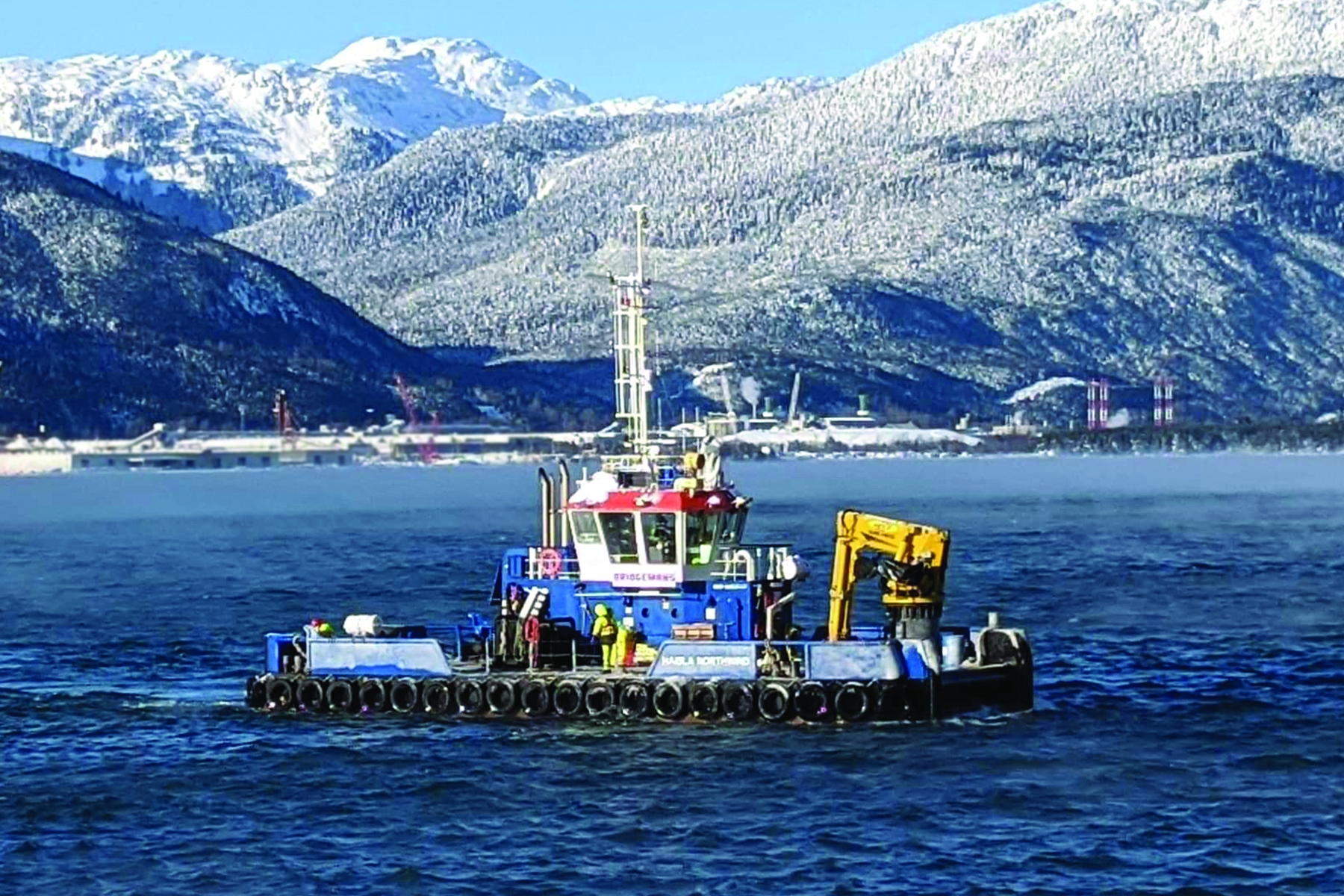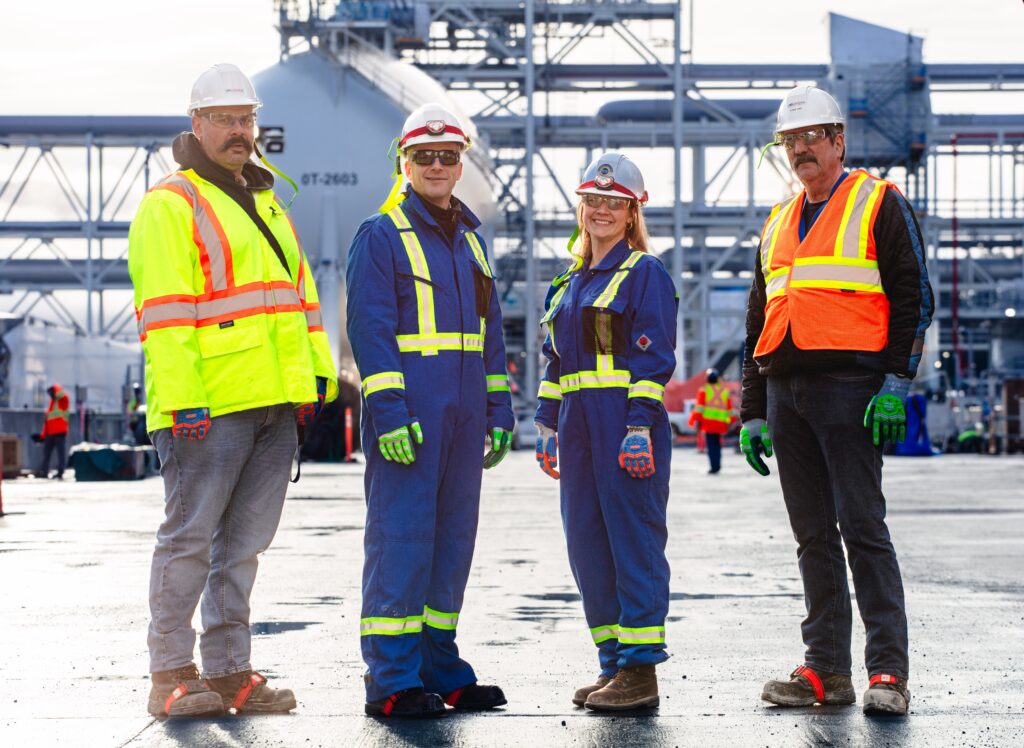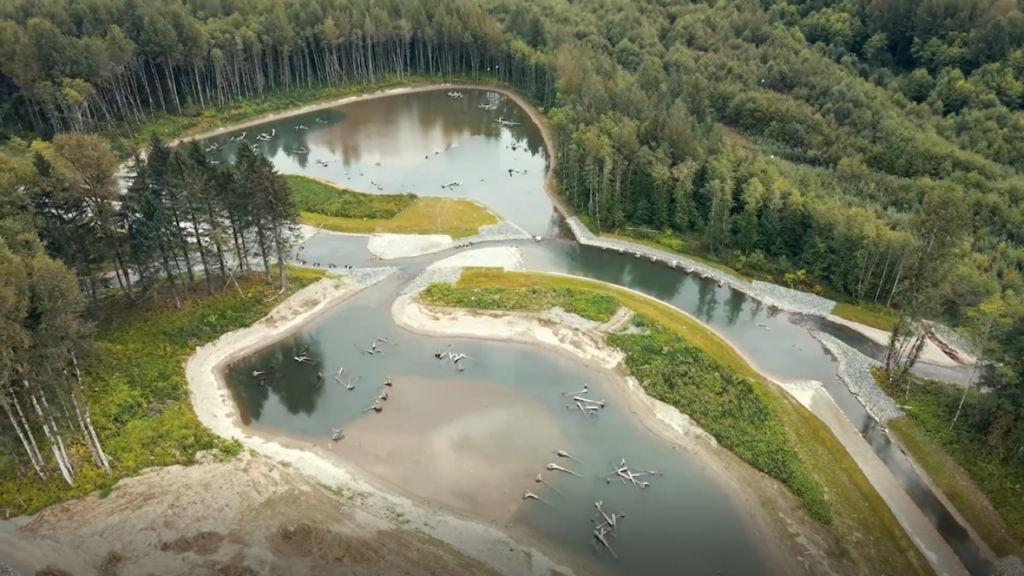Mar 02, 2023
Local company leads tug berth construction in partnership with Haisla Nation
Share

Creating opportunities locally drives LNG Canada’s vision as we prepare to operate our liquified natural gas export facility in Kitimat, British Columbia, in the traditional territory of the Haisla Nation.
Steering LNG Canada’s new tug berth facility is Bridgemans Kitamaat Joint Venture, a Haisla Nation partnership that has secured a new engineering, procurement, and construction contract award which includes the installation of marine piles, floating docks, and a breakwater.
“We are committed to working with local First Nations to create opportunities that benefit B.C. communities,” said Jason Klein, CEO of LNG Canada. “I congratulate Bridgemans Kitamaat Joint Venture for contributing their talent and expertise to our project.”
The new tug berth is essential to operation of the escort tugs and harbour tugs that will provide ship-assist and escort towing services to LNG carriers calling at LNG Canada’s export facility. Using battery-electric power and natural gas, they’ll form one of the greenest tug fleets ever assembled.
Bridgemans has been a partner of the Haisla Nation in the Kitimat region since 2014, when they provided workforce accommodations onboard an inshore floatel. Close engagement with the Haisla Nation and local communities has been an essential component of Bridgemans’ growth and continued success in the marine service industry.
“We have been providing services to LNG Canada in the Douglas Channel since 2018,” said Brian Grange, president of Bridgemans. “We are proud to be a local, Canadian company and excited to continue our support of the LNGC project, working in partnership with the Haisla Nation.”
Construction of the tug berth facility commenced in early 2023 and is scheduled to be fully completed in early 2024.
LNG Canada is committed to British Columbia. To date, LNG Canada and its contractors and subcontractors have awarded more than $4 billion in contracts and procurement to business in British Columbia, including more than $3.1 billion to First Nations-owned businesses and local area businesses.




